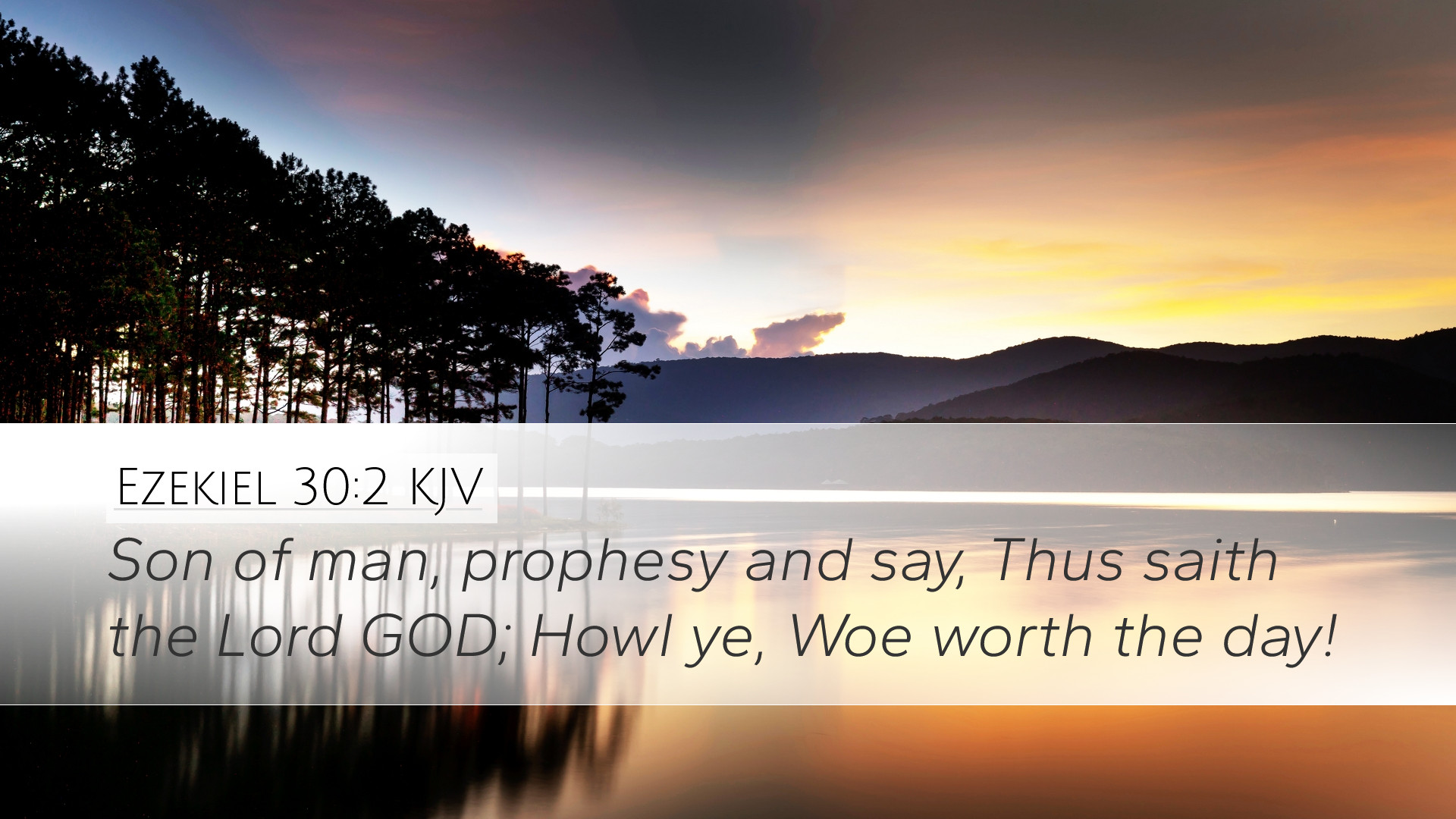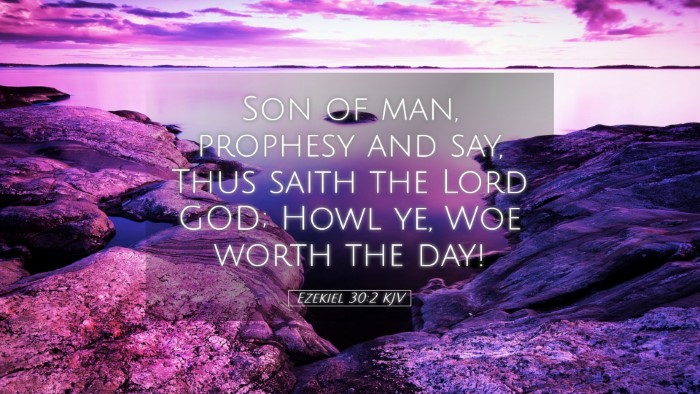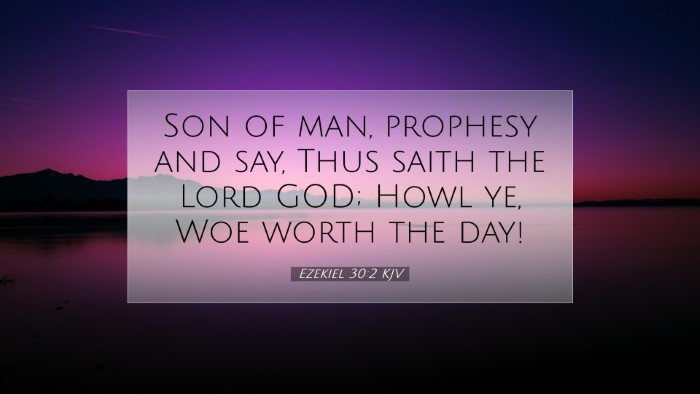Ezekiel 30:2 - Commentary Summary
Verse Text
Ezekiel 30:2 (KJV): "Son of man, prophesy and say, Thus saith the Lord GOD; Howl ye, Woe worth the day!"
Introduction
The prophetic words of Ezekiel often carry both a burden and a message of hope for Israel and the surrounding nations. Ezekiel 30:2 serves as a prelude to a series of judgments pronounced against Egypt and its allies, encapsulating themes of lamentation, accountability, and divine sovereignty. This verse is significant because it sets the tone for the following assertions regarding God’s impending judgment on Egypt, recognized as a powerful nation at the time.
Contextual Background
The book of Ezekiel is set during a tumultuous time in Israel's history, specifically during the Babylonian exile. The Israelites, having witnessed the fall of Jerusalem, seek understanding regarding God’s plans for their future. Ezekiel, called to be a prophet, speaks of both judgment and restoration. The verses surrounding Ezekiel 30 detail the impending disasters that will befall Egypt, a nation symbolic of oppression and idolatry.
Commentary Insights
Matthew Henry's Commentary
Matthew Henry emphasizes the call to "howl" as a deep and expressive lament. He observes that this mourning is not only for Egypt but also reflective of the consequences of sin and rebellion against God. Henry points out that the term "Woe" marks significant distress and impending calamity, suggesting an urgent warning to the people. He highlights that this prophecy serves as a stark reminder of God’s authority over nations, indicating that no empire, regardless of its might, can escape divine judgment.
Albert Barnes' Notes on the Bible
Albert Barnes elaborates on the phrase "Woe worth the day," noting that it captures a sense of impending disaster that is both personal and collective. He interprets this declaration as indicative of the seriousness of the situation, wherein God’s judgment is not merely a theme but an immediate reality for Egypt. Barnes connects this with the broader prophetic tradition, illustrating how prophetic discourse often intertwines judgment with a call to repentance.
Adam Clarke's Commentary
Adam Clarke provides a more historical context to this verse, explaining the state of Egypt during Ezekiel’s prophecies. Clarke associates the term "howl" with the reactions expected from the people of Egypt as they face God's judgment. He draws attention to the significance of national lamentation, stressing that this could serve as a moment of reflection for God's people. Clarke’s analysis also articulates the link between divine judgment and the socio-political landscape of the era, including the implications for Israel's future.
Theological Implications
This verse and its prophecy have rich theological implications for understanding the nature of God’s justice. It reinforces the concept of God as a righteous judge who holds nations accountable for their actions. Additionally, the call to "howl" embodies a deeper spiritual truth that recognizes the need for lamentation and repentance. For contemporary readers, especially pastors and theologians, this verse invites reflection on the corporate sins of nations and the divine response that follows.
Practical Applications
-
Awareness of Judgment:
This passage serves as a reminder to be vigilant regarding the moral state of our communities and nations. Pastors can use this to call congregations to prayer and reflection on societal issues.
-
Encouragement to Lament:
Encouraging congregations to engage in lamentation as a valid and necessary expression of faith can be fruitful. Recognizing the pain and injustice of the world allows for healing and restoration.
-
Call to Repentance:
Just as the prophet called Israel to recognize their sin, modern believers are reminded of the importance of personal and communal repentance before God.
Conclusion
Ezekiel 30:2 encapsulates a powerful moment of prophetic declaration, warning against complacency in the face of national and personal sin. The voices of Henry, Barnes, and Clarke remind us that biblical prophecy is deeply relevant both in historical contexts and in contemporary applications. As believers study these texts, it becomes evident that lamentation, repentance, and awareness of God’s sovereignty are essential elements in the life of faith.


